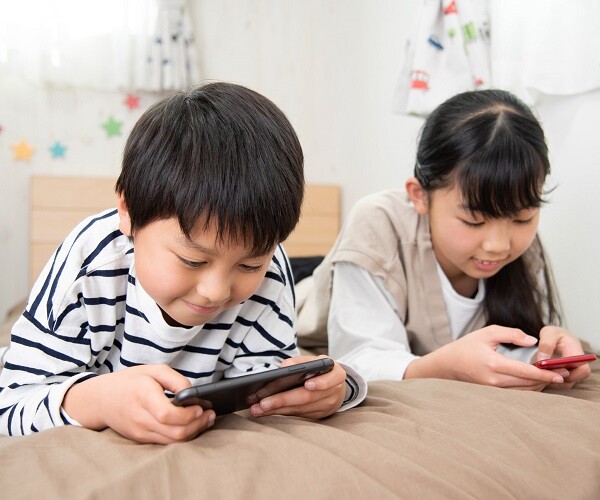Prolonged screen time can have negative effects on children’s health, particularly their brain development. Excessive use of mobile phones can impact their well-being, and it’s essential for parents to be aware of these potential risks.


Two significant brain changes linked to excessive phone use in children
Impaired memory and attention
Children who spend excessive time on their mobile phones, whether watching short videos, TV shows, or playing games, may experience negative effects on their memory and attention span. This claim is supported by scientific research.
A 2019 study revealed that children who spent more than four hours a day on their mobile phones performed worse on attention tests. The fast-paced and stimulating nature of mobile phone content can rewire children’s brain circuitry, leading to a preference for instant gratification.
As a result, when faced with less stimulating and more prolonged activities like studying or reading, children may experience fatigue and reduced attention. Additionally, excessive phone use can hinder the natural development of memory skills as children rely on their devices instead of their brains for information retrieval.
This over-reliance on technology can lead to a decline in memory function, particularly in the hippocampus region of the brain, which is responsible for memory encoding.

Excessive phone use can impair children’s memory and attention.
Poor emotional regulation
Children who spend a significant amount of time on their phones often exhibit mood changes and irritability. They may also appear emotionally withdrawn and less socially engaged.
Research indicates that children who spend more than five hours a day on their mobile phones are more likely to experience emotional disorders. This is due to heightened activity in the amygdala, the brain’s emotional center, coupled with insufficient regulatory function in the prefrontal cortex.
Additionally, the blue light emitted by phone screens can interfere with melatonin production, leading to sleep disturbances in some children. These factors collectively contribute to emotional dysregulation, increased anxiety, and impaired emotional control in children who spend excessive time on their phones.

Two steps to help children reduce their phone usage
Establish mobile phone usage rules
Helping children reduce their phone usage can be challenging, similar to breaking any other habit. It requires time and patience, so it’s important not to rush the process.
Here are two steps suggested by experts to effectively guide children towards healthier phone habits:
Set clear rules: Instead of abruptly taking away their phones, start by setting usage rules. Discuss with your children the reasons behind limiting screen time. Use a timer before they start playing on their phones to help them become more aware of the passing time.
Implement a reward and punishment system: When the allotted time is up, enforce a no-phone rule. Motivate your children by offering rewards for following the rules, such as extra playtime or engaging in a favorite activity. Conversely, if they exceed the time limit, assign reasonable punishments like extra chores or homework.

Establish clear rules and boundaries for mobile phone usage.
Spend more quality time with your children
Children often turn to their phones out of boredom and a lack of engaging alternatives. To address this, spend more quality time with your children and create enriching experiences. Go for walks, visit the library, enroll them in art classes, or work on craft projects together.
By engaging in creative activities, children will discover new interests and sources of enjoyment beyond their phones. Additionally, encourage participation in extracurricular activities like sports, music, or academic clubs to further reduce their reliance on phones for entertainment.
It is recommended to limit children’s daily screen time to less than two hours. Set specific times for phone usage and encourage outdoor activities, interactive family games, and social interactions to promote a healthier lifestyle.

































